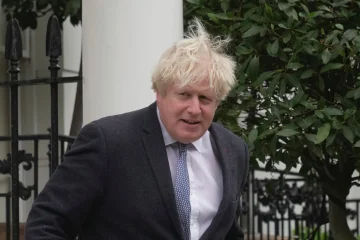Tony Peers: A Beacon of Community Leadership in the UK
Introduction to Tony Peers
Tony Peers is a prominent figure in the realm of community service and social advocacy in the United Kingdom. With a career spanning over two decades, Peers has been instrumental in various initiatives aimed at empowering local communities, addressing social issues, and promoting inclusion. His work is particularly relevant in today’s landscape, where community solidarity and support systems are essential for navigating challenges posed by economic disparity, mental health crises, and social isolation.
Notable Contributions
In the past few years, Peers has led several initiatives focused on mental health awareness, especially in light of the ongoing challenges presented by the COVID-19 pandemic. He has collaborated with local councils and health organisations to create outreach programmes that offer support to vulnerable populations. One significant project, launched in early 2023, provides accessible counselling services to underserved communities across urban areas, addressing the growing mental health needs that have surfaced during and after the pandemic.
Beyond mental health, Peers has also championed educational programmes aimed at youth empowerment. In partnership with several schools, he has introduced workshops on leadership, entrepreneurship, and civic engagement. These programmes not only equip young people with essential skills but also encourage them to become active participants in their communities.
Recognition and Future Outlook
Due to his impactful work, Tony Peers has been recognised with various awards, including the Community Leadership Award in 2022, underscoring his dedication and effectiveness in fostering community connections. As he continues to expand his efforts, Peers is currently planning a new initiative aimed at bridging gaps in employment through vocational training for disadvantaged individuals, which is set to launch later this year.
The significance of Tony Peers’ work extends beyond individual projects; it reflects a growing movement within the UK toward community-driven actions. As issues such as economic inequality and mental health remain at the forefront of public discourse, leaders like Peers are vital for mobilising support and fostering resilience within communities.
Conclusion
In conclusion, Tony Peers is not just a community leader; he is a vital advocate for change in the UK. His initiatives not only address immediate social challenges but also lay the foundation for a more inclusive and supportive society. As the community landscape continues to evolve, the impact of Peers’ work will undoubtedly resonate, inspiring others to engage and invest in their communities. Readers are encouraged to follow Peers’ journey and consider how they can contribute to local initiatives that promote social well-being.









